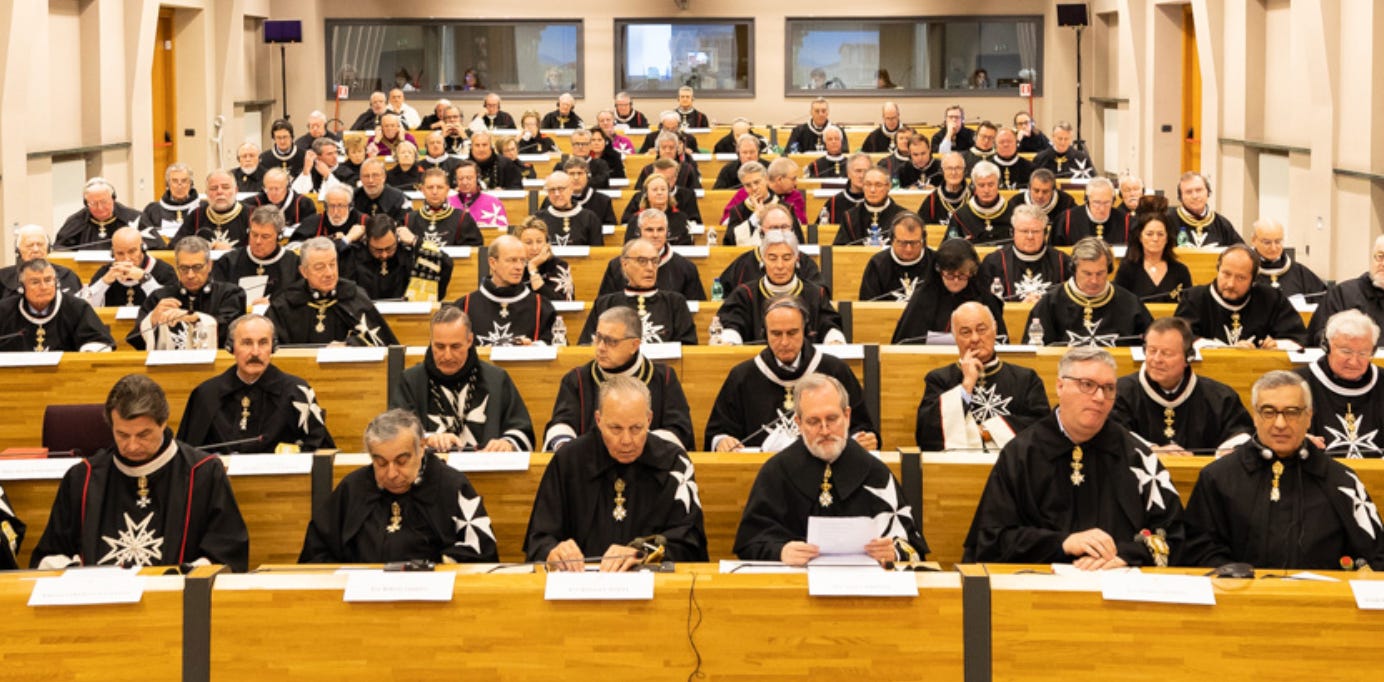Order in the Order: Knights of Malta meet Francis after chapter general
Given Francis’ decisive intervention in the order last year, many wondered if divisions among the knights would resurface.

The Knights of Malta met with Pope Francis Monday after concluding their extraordinary chapter general, the first after years of internal division over their future.
They were also meeting for the first chapter since Francis imposed a new constitution on the near-millennial sovereign institution, and forced through a changing of the guard among its senio…
